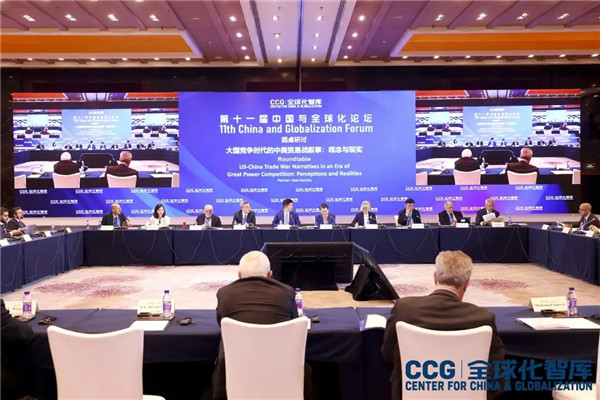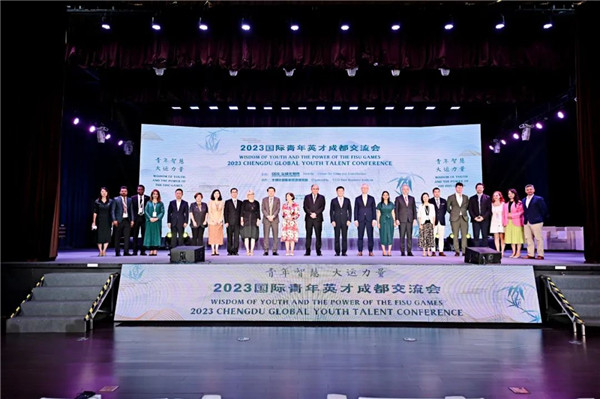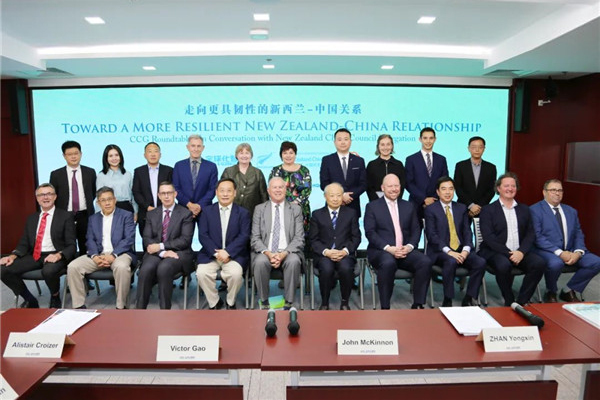CCG and Carnegie jointly held a seminar on U.S.-China relations and business ties
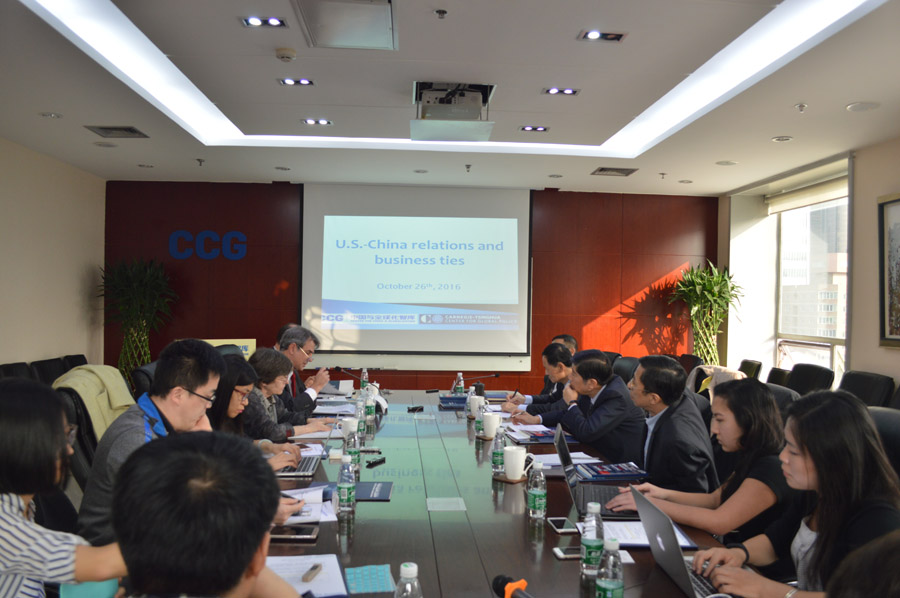
The 2016 Presidential election campaign will be held in the United States, the U.S. congress will also change. China and the U.S. have established diplomatic relations for 37 years. In the past 37 years, the two countries have carried out fruitful coordination and cooperation in terms of important international issues in many fields, and promoted world peace, stability and prosperity. Today’s world politics and economic situation have become increasingly complicated, as the only superpower, the status of the US is of vital importance. Sino-American relations in the next several decades will deeply influence the two countries and the trajectory of world politics and economic development. In this key period of time, therefore, the Presidential election in American has drawn great concerns in China and the world.
On the October 26, the seminar on the topic of U.S. China relations and business ties was held at the Center for China and Globalization (CCG) headquarters in Beijing. CCG and Carnegie-Tsinghua Centre for Global Policy jointly invited John Bellinger, the former Whitehouse legal advisor and senior research fellow at the Council on Foreign Relations, as well as Claire Reade, the former assistant US trade representative for China affairs in the Office of the USTR and senior associate with the Freeman Chair in China Studies at CSIS. Participants also include experts on China affairs, CCG scholars and researchers.
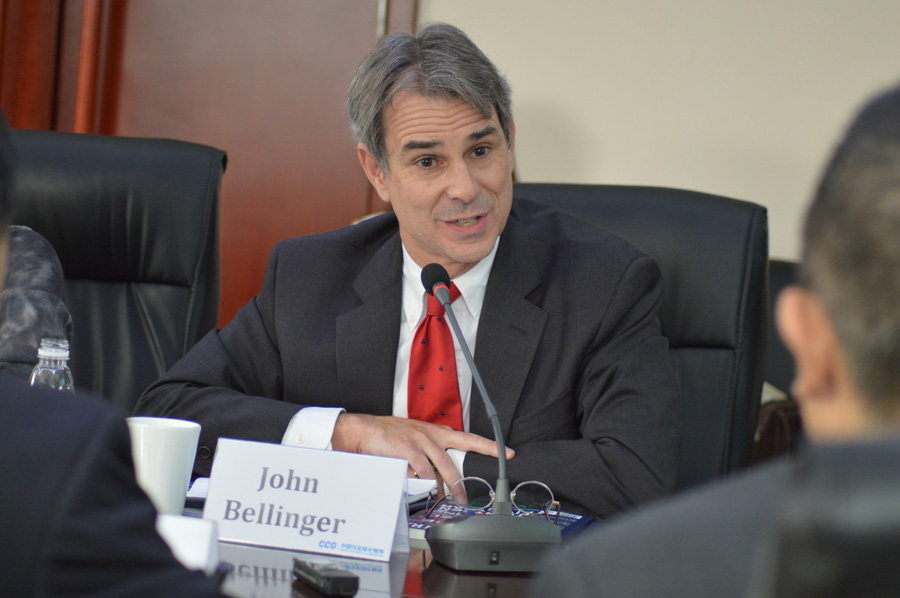
In the analysis of the 2016 U.S. Presidential Election, Bellinger thinks this year’s presidential is an unusual one, as each of the candidates is unpopular in their own parties. It is frankly that this presidential campaign is scary for Americans, particularly those educated Americans. Hillary Clinton has a larger chance to win the campaign for a number of reasons: first, Trump has no working experience in the U.S. government and has not participated in the process of domestic and foreign policy-making. However, Clinton’s experience of working as State Secretary would become her biggest legacy to win the campaign. Additionally, as a female candidate, Clinton has got increasing support from female citizens and minority groups. Although the “Private Email” scandal has had negative impacts on her, Trump’s scandals, however, seem to be more prominent.
In a letter drafted by 50 officials, known as ‘Donald Trump was not fit to be president’, Bellinger states that Trump’s policy orientation incorporates lots of biased and discrimination components. In public sphere, his extremely vulgar remarks on women, regularly attacks on the Democrat’s press, opposition of migration from Mexico, oddly close to Vladimir Putin, and refusal to release tax returns all prove that Trump is not qualified for president.
With regard to the impacts of the next president on China, Clinton or Trump, Bellinger says many people believe Trump’s victory is a good news for China, because Trump is a successful businessman, he knows the importance of sustaining China-U.S. trade relations. However, in fact, if Trump is finally elected, his policy orientation will be very difficult to predict. Clinton’s attitude towards China is more aggressive than Trump, but she knows China well. Economically, Clinton will definitely continue the China-U.S. trade cooperation dialogue. Since 2014, China has been the biggest FDI country of America. China-U.S. trade therefore will not be interrupted if she is elected.
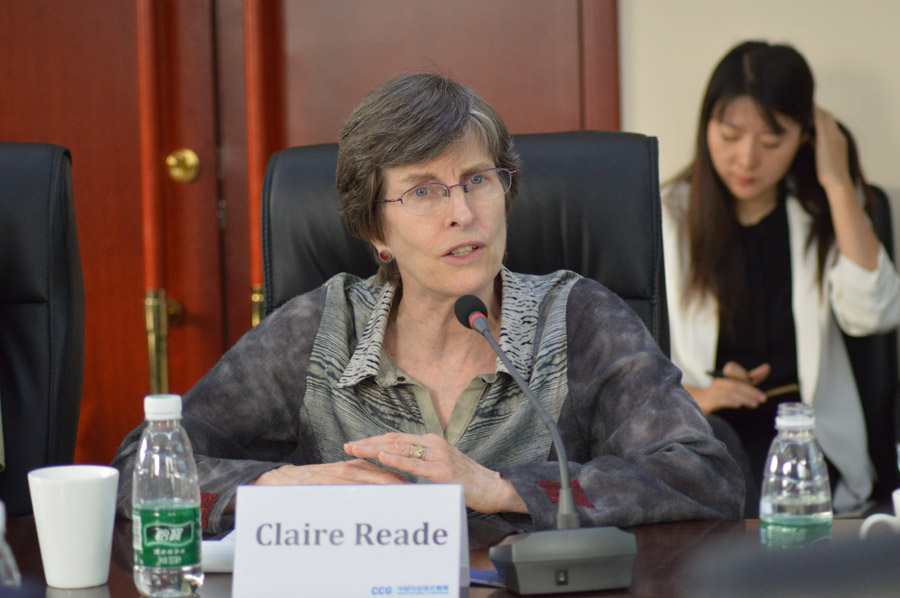
Claire Reade says that international trade has become a very pessimistic topic in recent years, mainly because both two candidates are against TPP. Although TPP is still possibly approved by the congress by the end of this year, the U.S. government’s budget has already expired at the beginning of September , solving the budget issue is the top priority of the congress, so less time has been left to deal with the issue of TPP. If Clinton can be elected, she will focus more on U.S. domestic economic development and infrastructure building. In terms of Sino-American relations, Claire indicates that Trump’s attitude towards China is very negative while Clinton’s is pragmatic. Clinton claims Sino-American relations should be strategically managed. Although a number of issues such as credibility and territorial conflicts exist, China and the U.S. still have many common interests. For America, the government should do a lot to revive the manufacturing industry and create new jobs. For China, Chinese leadership should attempt to promote social equality. In short, it is necessary for China and the U.S. working together to establish a “community of human destiny” and realize mutual development.
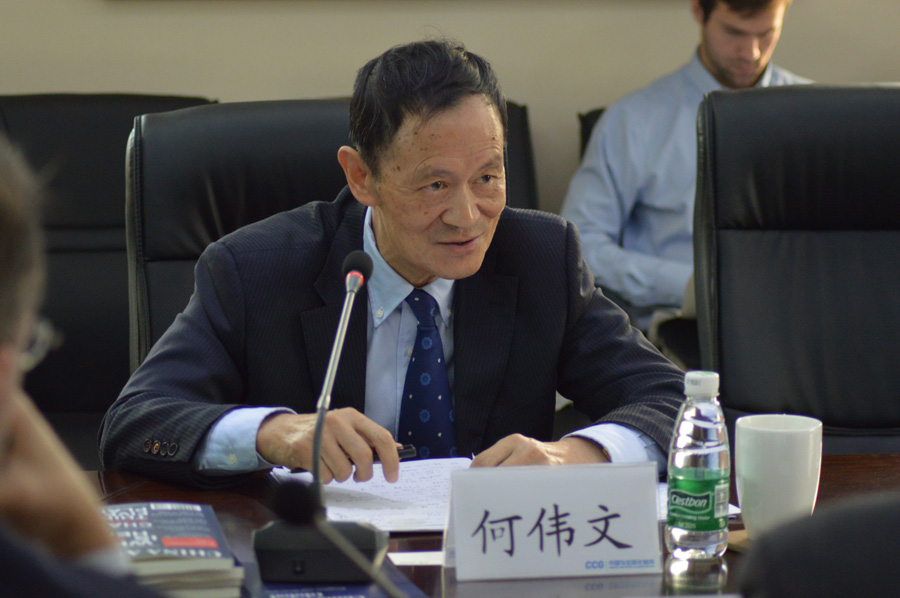
Weiwen He, the vice president of CCG, former Economic and Commercial Counselor at the Chinese Consulate General in New York and San Francisco, elaborated his perspectives from three aspects. First, trade policies cannot be predicted until the next president is confirmed. The practical policies after the election do not necessarily fit in candidates’ proposals mentioned in their presidential campaign, this has been proved by every presidential campaign throughout American history. For example, In Bill Clinton’s presidential campaign, he opposed the NAFTA, however, when he was successfully elected, he approved this act. The reason why Hillary Clinton oppose TPP is this agreement has not met her requirement. If complementary provisions can be added after Clinton come to power, TPP has great chances to be approved. Trump’s trade policy orientation can only be identified after he is elected as well. Second, if Trump fail to be elected, his anti-trade voice does not lack citizen’s support, because many Americans see free trade has a negative impacts on U.S. employmeny and middle class income. However, the U.S. is not a loser in the WTO and NAFTA. According to statistics, from 2000 to 2015, the America’s exporting growth rate towards the global, Canada, Mexico and China were faster than the importing growth rate. Even if trade surplus is expanding, the unemployment rate can also witness a decrease. For instance, the trade surplus in American aerospace industry in the past three years has experienced 10% growth, the production value has also grown about 13.1%, but the unemployment rate has decreased 1.6%. One of the most convincing explanations of this is that decreasing job opportunity in developed countries is not driven by free trade, technological progress determines economic prosperity. As free trade does not have such harmful impacts on economy, so no matter who become the next president would not cause fundamental changes on economic policies. However, China should be fully prepared for the pressure coming from the U.S. because anti-trade sentiment has a space within American society. Third, it is hard to witness that TPP can be approved in Obama’s presidency but possibility still exist. Since the Obama administration is consistently making efforts on that.
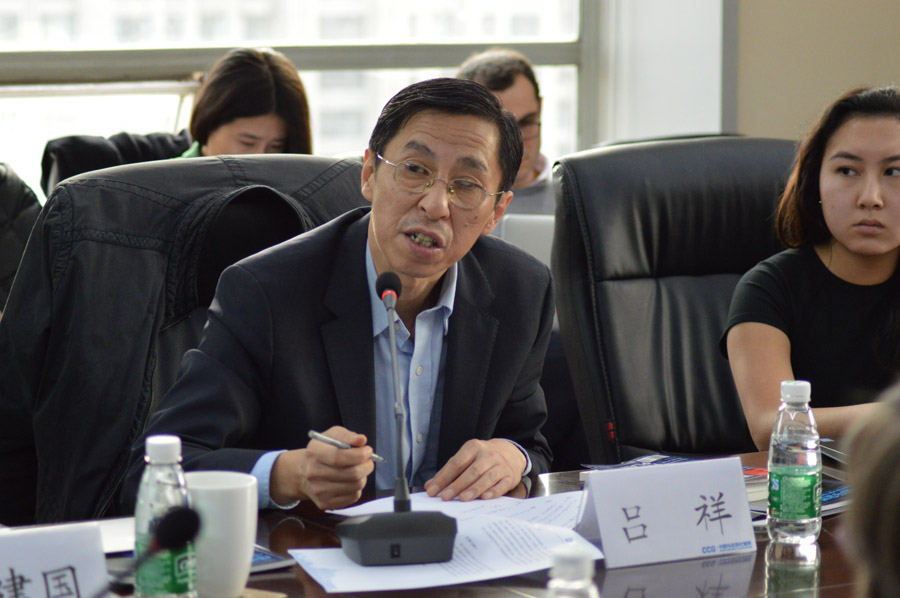
Researcher of the Chinese Academy of Social Sciences Lv Xiang claims, this year’s presidential campaign is very popular in China due to Trump’s involvement in such a key period between China and the U.S. He then deeply exchanged ideas with the guests related to the relationship between Trump and the Republican Party and Sino-American relations.
On the eve of the 2016 U.S. presidential election, China-US think tanks carried out a comprehensive discussion on the topics of Sino-American diplomacy and trade relations, it is also the third discussion that CCG has invited international experts to come. This activity has great implications on two countries mutual understanding and trade cooperation in the future.
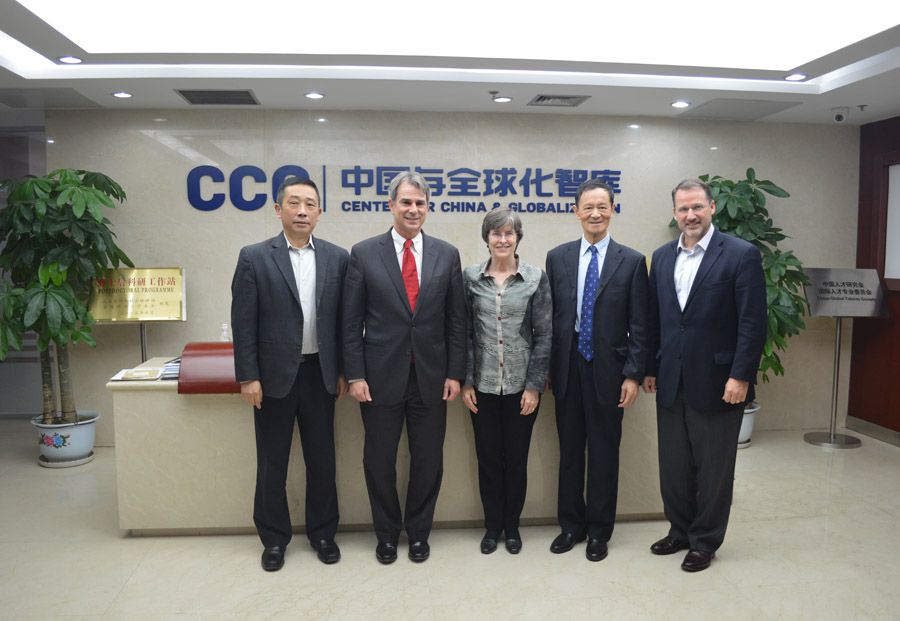
LocationBeijing
